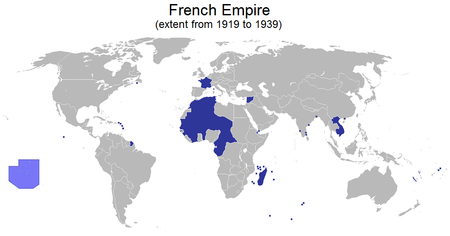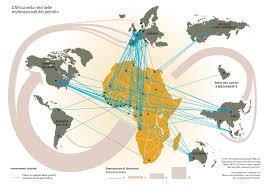INTRODUCTION
The major cause of voluntary movement of populations between and within national borders in recent years is rooted in the initial and growing disparity in development between and among states. The causes and consequences of such movement have economic, political, social and demographic dimensions (Heisel, 1982). Migration, by its very nature, involves at least three major actors: the migrant, the area or country of origin and the area or country of destination. While internal migration, in principle, implies movement of people within a geographically defined territory unrestricted by legal constraints, an international migrant is invariably confronted with a series of-sometimes complex -- regulations relating, at first, to exit from the country of origin, and later, entry into, residence within, and exit from the receiving country. In Africa, as elsewhere in the developing regions, the historical evolution and stages of political development are crucial to an understanding of migration in general, the distinction and linkages between internal and international migration, their causes and policy issues. Of particular relevance in the African context are the effects of the demarcation of national boundaries, the emergence, since the early 1960s, of independent nation-states and especially the setting up of regulations governing immigration. These have introduced a subtle distinction between internal and international migration both of which once involved free movement across wide areas of Africa and, in the case of international migration, between legal and illegal immigrants. These linkages are analysed below against the background of the causes of population movements and the policy responses to them.
Migration in Africa: a brief historical overview
The migration phenomenon in Africa can be better understood within the context of political and historical evolution of African societies. The effects of colonization and decolonization on the economy and indirectly on migration are most visible when examined in the context of the pre-colonial, the colonial and post-colonial era. In the pro-colonial era, population movements in Africa were associated largely with the prevailing sociopolitical and ecological conditions, especially internecine warfare, natural disasters and the search for farm land or colonization. The movements were, as a result, unstructured, occurred in groups, and the migrants were demographically undifferentiated (Adepoju, 1979).
Colonial rule paved the way for peace and political stability; movements hitherto associated with internecine warfare ceased or were reduced but have since again surfaced, according to a different pattern, in the form of refugees as independent nations engage in war, as in the case of the Ethiopia/Somalia conflict, the internal strife in Chad, Angola, Uganda and Nigeria and the liberation war in West, Central and South Africa. Natural disasters still persist: the drought in the Sahel region of West Africa and parts of East Africa dislodged many thousands of people, including women and small children. The search for new or fertile land still continues and the number of the landless poor has increased considerably, notably in East Africa.
The introduction of various coercive measures and incentives during the colonial era was largely designed to secure labour to meet the growing demands of the mines and plantations. In West Africa, the French colonial administration resorted to various forms of labour conscription in, for instance, Upper Volta and Mali. In eastern and southern Africa, migrants were not directly coerced; rather, a series of strong economic policies were used to induce labour of the required quality and quantity to work in the mines and plantations.
In South Africa, in particular, workers' families have, since 1963, been prevented from living with them at the work-site; this, coupled with low pay and poor working conditions, initially led to high labour turnover. In fact, the conditions favouring such a situation were designed to maintain low subsistence wages. Besides, when the arduous tasks reduced productivity of workers, who were hired on contract for periods of not more than two years, the overtaxed and exhausted workers were replaced in order to maintain, indeed increase, productivity. Here lie the roots of the temporary, target migration pattern, which involves international migration, in the African context: workers circulate between home and the mines, disillusioned by the poor earnings and inadequate welfare services. In certain cases, workers prefer to return home permanently rather than remain in the mines and plantations where working conditions are, in fact, dehumanizing. In this context, the explanation of the temporary nature of migration in eastern and southern Africa in terms of target needs is inappropriate. The underlying factors can be traced to the organization of tasks, living and working conditions not normally conducive to decent living. Thus, as conditions of work improve, workers are more stable and 'committed' and indeed attract further manpower, as was the case in Zambia, United Republic Cameroon (in the plantations of former Spanish Guinea) and Nigeria. By the time of independence, these migrations became institutionalized, but by then various restrictive practices relating to family reunions, residence and contractual labour systems in West and East Africa had been removed; however, these are still enforced, perhaps even more rigorously, in South Africa.
Currently, a series of external constraints on the internal development strategies in Africa invariably affect the opportunity structure of the local population, especially in rural areas. The policies of international corporations with regard to investment which buttresses national development strategies exert tremendous impact on the internal political, social and economic organization, especially with respect to location and types of employment opportunities, incomes and living conditions which have in turn influenced both internal and international migration in Africa
Colonial rule paved the way for peace and political stability; movements hitherto associated with internecine warfare ceased or were reduced but have since again surfaced, according to a different pattern, in the form of refugees as independent nations engage in war, as in the case of the Ethiopia/Somalia conflict, the internal strife in Chad, Angola, Uganda and Nigeria and the liberation war in West, Central and South Africa. Natural disasters still persist: the drought in the Sahel region of West Africa and parts of East Africa dislodged many thousands of people, including women and small children. The search for new or fertile land still continues and the number of the landless poor has increased considerably, notably in East Africa.
The introduction of various coercive measures and incentives during the colonial era was largely designed to secure labour to meet the growing demands of the mines and plantations. In West Africa, the French colonial administration resorted to various forms of labour conscription in, for instance, Upper Volta and Mali. In eastern and southern Africa, migrants were not directly coerced; rather, a series of strong economic policies were used to induce labour of the required quality and quantity to work in the mines and plantations.
In South Africa, in particular, workers' families have, since 1963, been prevented from living with them at the work-site; this, coupled with low pay and poor working conditions, initially led to high labour turnover. In fact, the conditions favouring such a situation were designed to maintain low subsistence wages. Besides, when the arduous tasks reduced productivity of workers, who were hired on contract for periods of not more than two years, the overtaxed and exhausted workers were replaced in order to maintain, indeed increase, productivity. Here lie the roots of the temporary, target migration pattern, which involves international migration, in the African context: workers circulate between home and the mines, disillusioned by the poor earnings and inadequate welfare services. In certain cases, workers prefer to return home permanently rather than remain in the mines and plantations where working conditions are, in fact, dehumanizing. In this context, the explanation of the temporary nature of migration in eastern and southern Africa in terms of target needs is inappropriate. The underlying factors can be traced to the organization of tasks, living and working conditions not normally conducive to decent living. Thus, as conditions of work improve, workers are more stable and 'committed' and indeed attract further manpower, as was the case in Zambia, United Republic Cameroon (in the plantations of former Spanish Guinea) and Nigeria. By the time of independence, these migrations became institutionalized, but by then various restrictive practices relating to family reunions, residence and contractual labour systems in West and East Africa had been removed; however, these are still enforced, perhaps even more rigorously, in South Africa.
Currently, a series of external constraints on the internal development strategies in Africa invariably affect the opportunity structure of the local population, especially in rural areas. The policies of international corporations with regard to investment which buttresses national development strategies exert tremendous impact on the internal political, social and economic organization, especially with respect to location and types of employment opportunities, incomes and living conditions which have in turn influenced both internal and international migration in Africa



